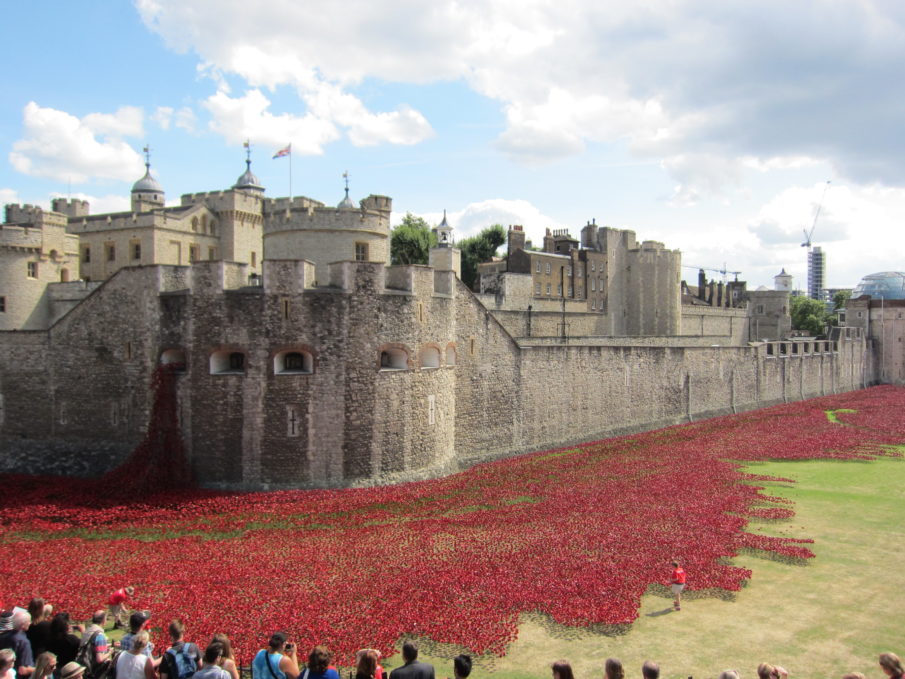If you visit Great Britain or any Commonwealth country this time of year, you’ll notice one thing: an ocean of red poppies. From soccer players to schoolboys to business people, you’ll see everyone proudly sporting them.
Remembrance Day draws near, known as Veterans Day in the Commonwealth countries. This Saturday, the 11th day of the 11th month, at the 11th hour all will fall silent in honor of those who have given all. Remembrance Sunday follows the next day.
Why the red poppy? Because it was the only thing that could grow in western Europe amidst the devastation of trench warfare. And also because of a poem.
“In Flanders Fields” was written by Lt. Col. John McCrae, a Canadian doctor serving in Flanders in 1915. The reason for writing it was a grim one: a close friend of his had just been killed by a shell. To console with his loss, McCrae penned the famous poem:
In Flanders fields the poppies blow
Between the crosses, row on row,
That mark our place; and in the sky
The larks, still bravely singing, fly
Scarce heard amid the guns below.
We are the Dead. Short days ago
Already have an account? Sign In
Two ways to continue to read this article.
Subscribe
$1.99
every 4 weeks
- Unlimited access to all articles
- Support independent journalism
- Ad-free reading experience
Subscribe Now
Recurring Monthly. Cancel Anytime.
We lived, felt dawn, saw sunset glow,
Loved and were loved, and now we lie,
In Flanders fields.
Take up our quarrel with the foe:
To you from failing hands we throw
The torch; be yours to hold it high.
If ye break faith with us who die
We shall not sleep, though poppies grow
In Flanders fields.
“In Flanders Fields”- John McCrea, 1915.
Once the war ended, Moina Michael, an American Professor, read the poem and was inspired by its solemnity. She dedicated the rest of her days to honoring those who had died and she began by selling silk red poppies. A few years later, in 1921, the British Legion was founded to promote veteran charities. The rest is history as every year since people buy and sport a red poppy to honor the dead of all conflicts. The funds that are raised support veteran causes.
In 2014, the centenary from the outbreak of the First World War, 888,246 red poppies, each representing a British or Commonwealth dead soldier, filled the moat of the Tower of London in a spectacular display.
Do you have a war poem to share?
Image courtesy of Wikimedia Commons.










COMMENTS